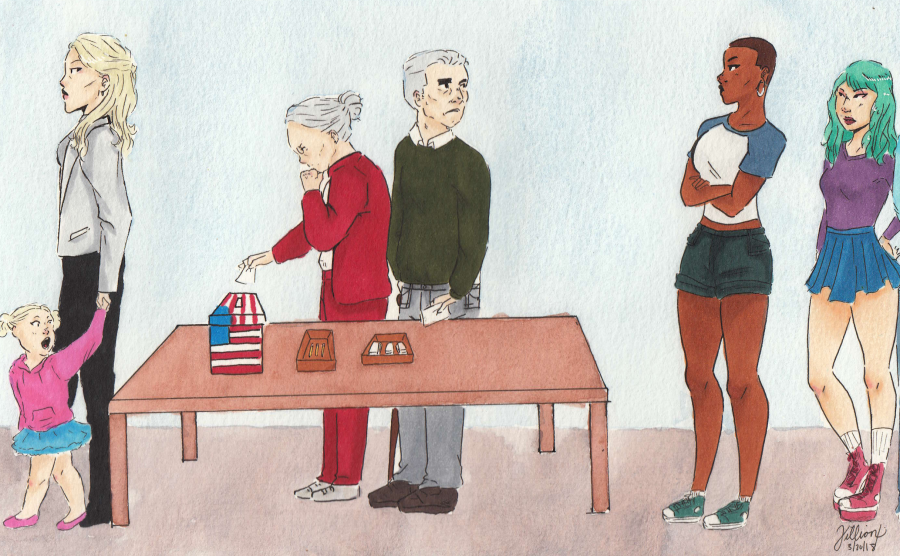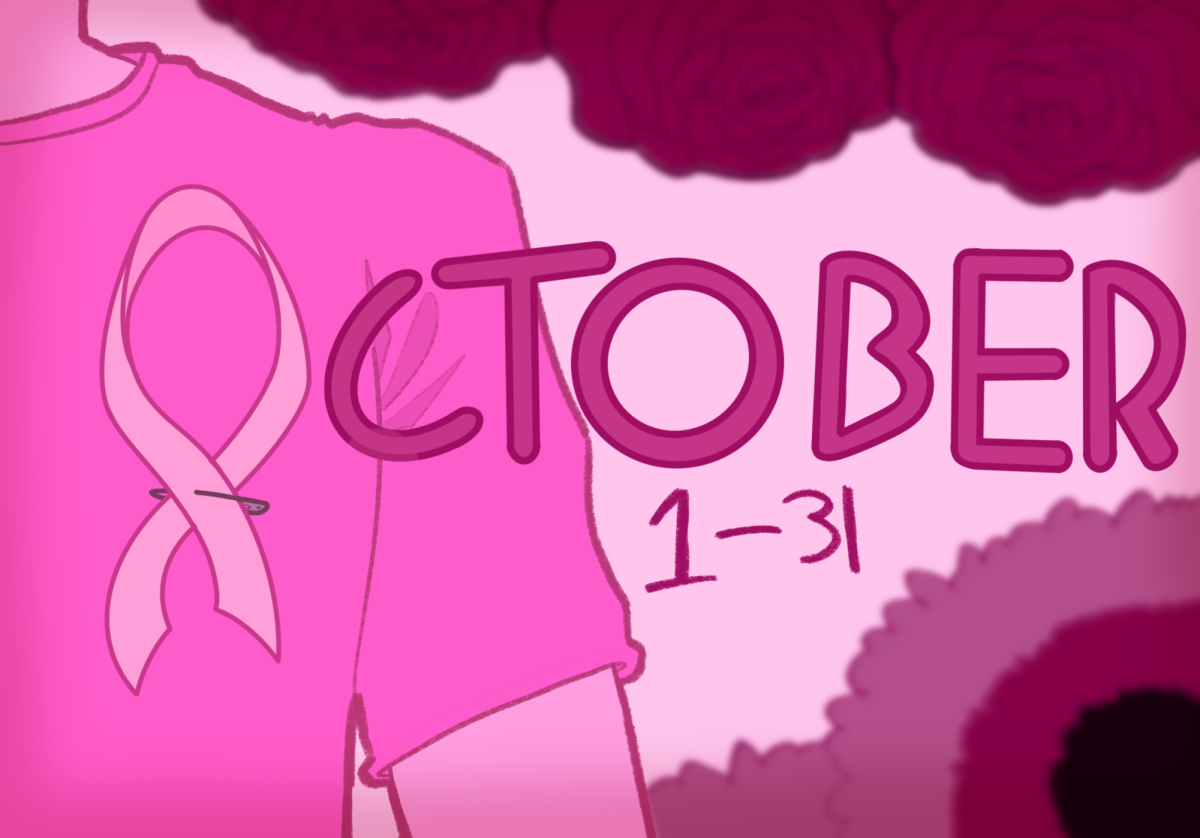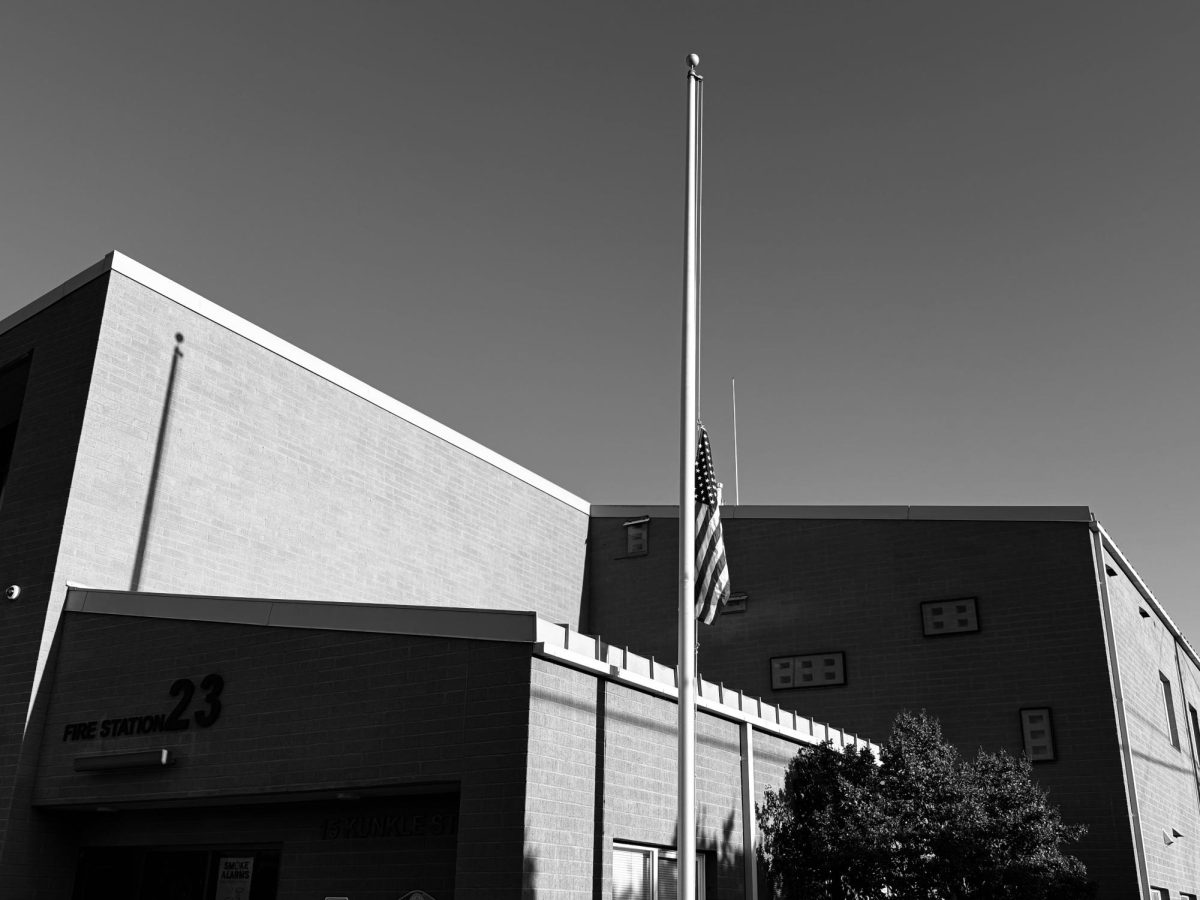The ability to vote is a sobering privilege that, if taken seriously, introduces one to the intense responsibilities of the real world. Learning to partake in the cornerstone of our quasi-democracy earlier on in life would help kids end their trademark preference for extracting viewpoints from meme-ology and Facebook headlines. The oppressively over-ripened voting age of 18 must end.
We live in an America where high-school and college kids are working less (not to their fault), studying more and as a result, lack the basic skills to interact with people. By lowering the voting age, these kids may still be unable to work but will feel motivated to discuss and debate issues with their peers, social interactions that are much more sophisticated and therefore more valuable than “Would you like some fries with that, sir?”
A point often ignored about children is that like any group of people in America, they are affected by and should care about policy just as much as adults. The long and rich history of kids protesting injustice goes back to the pivotal moments of the civil rights movement, a sentiment that isn’t at all dead—it just takes something really bad happening for people to care.
A recent case of that sentiment manifesting itself is with Florida high schoolers, one of whom my colleague Sam Bova has interviewed. They have appeared on national television to discuss gun reform after seeing their classmates massacred. You would be right to say they’re pushing an agenda, but it would be wrong to claim it’s one they’re not entitled to, or that the broadcast institutions are immoral for giving them a platform. Call it grandstanding, but the scene of a teenage boy humiliating Marco Rubio in a way that most elected Democrats can’t is absolutely priceless.
These instances of kids embarrassing and shaming politicians, an arguably flawed tactic, tend to gain attention in the sensationalist media sphere. People began noticing the same five students appearing on television, egging on conspiracy claims of “crisis actors” and a false flag. This is no conspiracy, just the most media savvy kids of those affected sticking up for their peers. I can’t extrapolate from the Florida school shooting per se, as there were many kids outside of those same five who were, to their credit, talking with local news anchors. That aside, this can’t be satisfactory; we need more kids voicing their feelings towards the status quo in Washington. Emotionally venting isn’t enough. Kids are taken more seriously when they endorse and purpose solutions—something voting would engender.
I’m open to an incrementalist approach. I characterize my generation as being largely uninformed and apolitical, but showing glimpses of potential suggesting we could handle the responsibility of voting and experience a massive attitude shift towards news and politics. Whereas I may be assured of this possibility, it’s not without a period of growing pains and gradual transformation.
Most kids like myself would jump at the opportunity to vote, while others would likely abuse it by voting ironically and writing in fake names or propositions for fun. Although nowhere near the 11,000 votes claimed, it’s probable that some individuals did in fact write in “Harambe” for president in the last election, giving us a preview as what will happen if we take an all-or-nothing approach to expanding teenage voting. Dilemmas like this could be solved by letting teens vote on the condition of testing, akin to vetting immigrants who want citizenship.
Some will postulate that lowering the voting age to 16 or 13 is dangerous because our youth are, as of now, incontrovertibly stupid and probably can’t answer basic questions about their country. First of all, let’s not fall under the illusion that many adults couldn’t also fit this description. Secondly, that criticism absurdly points to the product of keeping the voting age high as the reason for why it can’t be lowered. It can be, and will help create a more talkative, critically thinking, vivacious youth without detriment to democracy.










